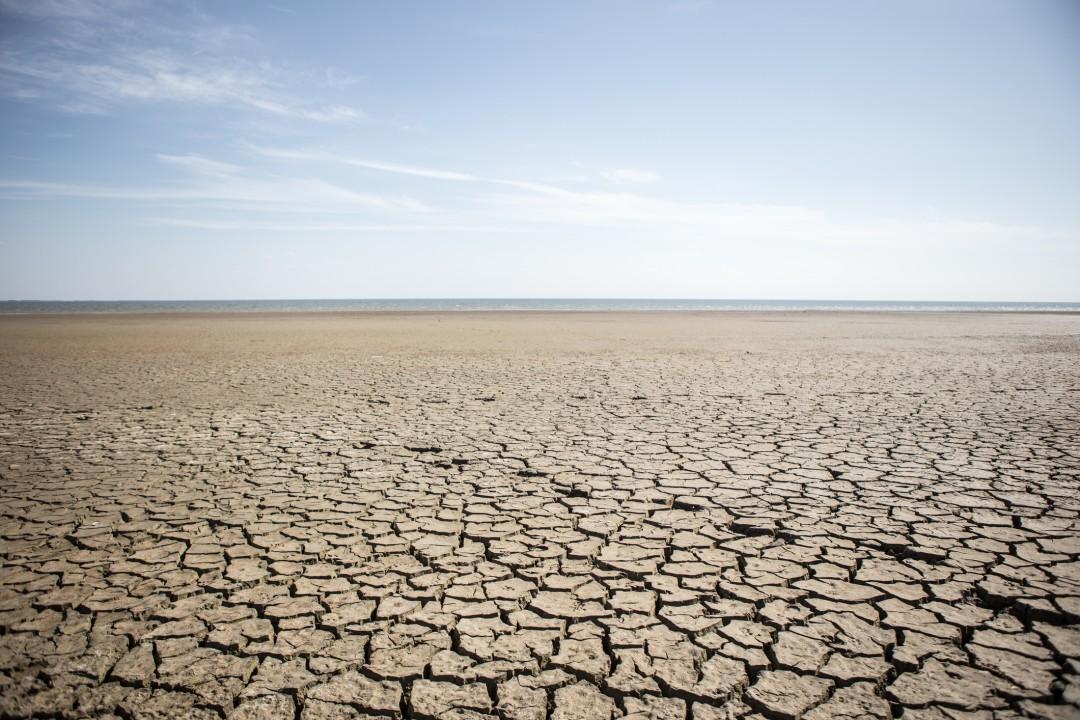Dusted off an anecdote from 2015 about proprietary trading, risk taking (see below). The age of leveraged carry and buy-and-hold investors is behind us. Back to basics.
One River Digital’s team published a piece on the distressed opportunities unfolding across the bitcoin mining industry and the parallels with commodity cycle downturns [click here].
Week-in-Review (expressed in YoY terms): Mon: WSJ article suggested Fed likely to hike 75bp (after Sunday saying 50bp was most likely), ECB’s Kaimir sees clear need to accelerate pace of hikes and deliver 50bp hike in September, UST curve continues to bear flatten as 2y yields reach highest level since 2007, BoJ sticks to YCC as JGBs test upper limit / Kuroda says rapid weakening of the JPY is negative for the economy, digital asset crash continues, Beijing delayed school reopening and Shanghai suspended indoor dining as cases resurface, S&P -3.9%; Tue: JGB market panics as yields slip above 25bps – sending stops through the futures markets, large crypto hedge fund 3 Arrows Capital rumored to be in trouble, ECB’s Knot says July hike should be greater than 25bp, Biden rumored to be considering a profit tax for oil companies, Freeport says may take up to 3m to reopen nat gas export facility, ECB’s Schnabel says ECB ready to move fwd with new fragmentation tool at short notice, US NFIB 93.1 (93e), US PPI Final Demand 10.8% (10.9%e), S&P-0.4%; Wed: Fed delivers 75bp hike / Powell says 75bp hikes are likely to be “uncommon” / projections suggest lower growth and higher infl / George dissents in favor of 50bp hike, ECB hold emergency meeting to address fragmentation risks – decides to give flexibility to PEPP to contain spreads and push for formal review of options, BOJ announces it will also buy cheapest to deliver issues to help contain sell off in JGB futures / BOJ bought record 2.2T JPY in gov’t notes, China held 1y MLF steady, Brazil CB hikes 50bp as exp, RBA gov Lowe says will do what’s necessary to bring down infl, Argentina CPI 60.7% (60.6%e), Japan core machine orders 19% (5.3%e), China IP 0.7% (-0.9%e) / China Fixed Asset inv 6.2% (6%e), EU IP -2% (-1.1%e), EU Trade balance -31.7b (-14.5b exp), US empire mfg -1.2 (2.3e) / ret sales 0% (0.3%e) / impt prices 11.7% (11.9%e) / bus inventories 1.2% as exp, S&P +1.5%; Thur: SNB surprises with 50bp hike (21bp expected), BOE hiked 25bp (as expected but 3 votes for 50bp) – opens door to acting “forcefully” if necessary, Hungary CB unexpectedly hiked depo rate by 50bps, Macron /Drahi / Sholz all visit Kyiv on eve of suspected announcement of Ukraine as candidate to join EU, media reports suggest ECB’s eventual fragmentation tool will involve selling other securities to neutralize any interventions and will likely be ready before July meeting, Russia reduced the supply of gas to Europe, Japan expts 15.8% (16.1%e)/ impts 48.9% (44%e), Australia emp change 60.6k (25k exp) / unemp 3.9% (3.8%e), US housing starts -14.4% MoM (-2.5%e), US Philly Fed -3.3 (5e), US init claims 229k (217k exp), S&P -3.3%; Fri: BoJ maintains policy stance (8-1) and Kuroda shows "unwavering" easy policy stance, worth noting BOJ bought ~$72b worth of JGBs this past week to defend YCC (!!!), Fed Chair Powell reiterates the Fed is "acutely focused on returning inflation to our 2% objective,” Fed’s Kashkari says he could support another 75bp hike in July, Fed’s George says she dissented because of concerns around introducing uncertainty to the Fed’s process, White House working on legislation to combat inflation and reign in deficit, Turkey exp infl 37.91% (33.28%p), EU final CPI 8.1% as exp / Core CPI 3.8% as exp, Poland PPI 24.5% (24.7%p), US IP 0.2% MoM (0.4%e), US leading index -0.4% as exp, S&P +0.2%; Sat/Sun: digital asset crash extends.
Weekly Close: S&P 500 -5.8% and VIX +3.38 at +31.13. Nikkei -6.7%, Shanghai +1.0%, Euro Stoxx -4.6%, Bovespa -5.4%, MSCI World -5.9%, and MSCI Emerging -4.7%. USD rose +61.4% vs Ethereum, +43.6% vs Bitcoin, +3.6% vs Chile, +3.3% vs Brazil, +2.0% vs Canada, +1.9% vs Mexico, +1.9% vs Indonesia, +1.8% vs Australia, +1.5% vs Sweden, +1.3% vs Turkey, +1.0% vs South Africa, +0.6% vs Sterling, +0.5% vs Yen, +0.3% vs India, +0.2% vs Euro, and +0.1% vs China. USD fell -1.2% vs Russia. Gold -1.8%, Silver -1.3%, Oil -8.3%, Copper -6.4%, Iron Ore -8.1%, Corn +1.7%. 5y5y inflation swaps (EU -18bps at 2.05%, US -10bps at 2.64%, JP -2bps at 0.82%, and UK -12bps at 3.79%). 2yr Notes +12bps at 3.18% and 10yr Notes +7bps at 3.23%.
YTD Equity Indexes (high-to-low): Chile +14.7% priced in US dollars (+17.6% priced in pesos), UAE +11.4% priced in US dollars (+11.4% priced in dirham), Colombia +7.7% priced in dollars (+3.1% in pesos), Saudi Arabia +4.9% (+4.8%), Turkey +4.1% (+36.4%), Brazil +3.1% (-4.8%), Indonesia +1.3% (+5.4%), Singapore -3.8% (-0.8%), Portugal -4% (+4.4%), Venezuela -6.8% (+7.4%), Mexico -9.4% (-9.9%), Norway -9.5% (+2.9%), HK -10.5% (-9.9%), Thailand -11.1% (-5.9%), Malaysia -12.1% (-7.1%), South Africa -12.4% (-11.9%), Argentina -12.8% (+4.3%), Spain -13.5% (-6.5%), Canada -13.5% (-10.8%), China -13.8% (-8.9%), UK -14.4% (-5%), Greece -15.1% (-7.6%), Philippines -15.4% (-11.1%), India -15.9% (-11.9%), Czech Republic -15.9% (-9.5%), Australia -17.2% (-13%), Russia -19% (-37.8%), Israel -20.1% (-11.3%), Taiwan -20.1% (-14.1%), Belgium -20.8% (-13.8%), Denmark -22% (-15.7%), S&P 500 -22.9%, MSCI World -23.1%, Japan -23.1% (-9.8%), Germany -23.6% (-17.4%), Switzerland -23.6% (-18.8%), France -24.4% (-17.8%), Korea -24.5% (-18%), New Zealand -25.4% (-18.8%), Finland -25.4% (-19.4%), Russell -25.8%, Italy -26.3% (-20.3%), Euro Stoxx 50 -26.5% (-20%), Netherlands -26.7% (-20.3%), Austria -27.8% (-22%), Ireland -29.1% (-22.8%), Sweden -30.9% (-22.1%), NASDAQ -31%, Poland -31.2% (-24.1%), Hungary -33.9% (-22.5%).
Anecdote (Feb 2015): “My first six months were agony,” he said. “Nothing worked, no matter how hard I tried.” We sat in London, relaxed, reflecting, in a magnificent meeting room, dressed in fine art, disguising the true nature of this wonderfully horrible business. Because trading-floor walls are filthy, stained from risk-takers throwing crap, hoping something sticks. “Worried I’d get sacked,” continued the portfolio manager, now amongst the industry’s top. “So I reached out to an old hand, for advice, help, anything really.” Prop trading is awful. No matter how good you may have been, in a new seat you must prove yourself all over again. Then come January, you start anew. Lurking within your psyche is a fear that previous success was dumb luck; a monkey throwing bullseyes. “I asked Benjamin if we could chat.” Now, as fate would have it, Benjamin and I are lifelong friends, having sat together as prop traders in the 1990s, back when riotous young Brits enjoyed smashing Bloomberg keyboards with their phones when trades went wrong. Prop trading is a team sport, comprised of guys playing identical positions, desperate to dominate one another. Despite your financial fate improving alongside others, you don’t really want anyone to make more than you. Given the choice to (1) make a little money yourself even though your teammates lose a ton, or (2) lose a little yourself while your teammates make a fortune, prop traders pick #1. Which is seriously warped, but it is what it is, which makes it fine. “So, I poured out all my fears, frustrations, and asked for help, advice, guidance.” Benjamin listened carefully, considered the young trader, a decade his junior, and said, “This is all very interesting. Yes, I see your problem. But I’m just struggling to see what any of this has to do with me?”
Good luck out there,
Eric Peters
Chief Investment Officer
One River Asset Management
Disclaimer: All characters and events contained herein are entirely fictional. Even those things that appear based on real people and actual events are products of the author’s imagination. Any similarity is merely coincidental. The numbers are unreliable. The statistics too. Consequently, this message does not contain any investment recommendation, advice, or solicitation of any sort for any product, fund or service. The views expressed are strictly those of the author, even if often times they are not actually views held by the author, or directly contradict those views genuinely held by the author. And the views may certainly differ from those of any firm or person that the author may advise, drink with, or otherwise be associated with. Lastly, any inappropriate language, innuendo or dark humor contained herein is not specifically intended to offend the reader. And besides, nothing could possibly be more offensive than the real-life actions of the inept policy makers, corrupt elected leaders and short, paranoid dictators who infest our little planet. Yet we suffer their indignities every day. Oh yeah, past performance is not indicative of future returns.





